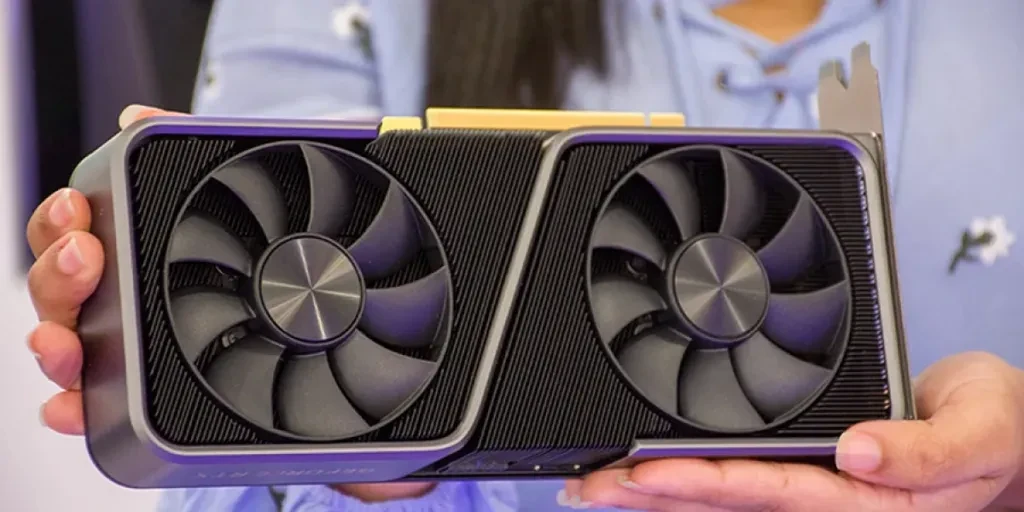Smart home kits and systems are revolutionizing modern living by providing unmatched convenience, enhanced security, and significant energy savings through advanced automation and seamless connectivity. These systems enable homeowners to control various aspects of their homes remotely, from lighting and heating to security and entertainment, ensuring a more efficient and comfortable living environment.
Integration with platforms like Alexa, Google Home, and Apple HomeKit further enhances the user experience by offering unified control over multiple devices. As smart home technologies continue to evolve, they bring innovative solutions that simplify everyday tasks, enhance home security, and promote energy efficiency.

The rapid growth of this market, driven by technological advancements and increasing consumer awareness, underscores the growing importance of smart home solutions. Embracing these technologies allows homeowners to create intelligent, responsive living spaces that cater to their specific needs and preferences, making daily life more convenient and sustainable.
Table of Contents
● Market overview
● Things to consider when selecting products
● Top Products and Their Features
● Conclusion
Market overview
The global smart home market is experiencing significant growth, projected to reach $790.19 billion by 2030, expanding at a CAGR of 25.06% from 2023 to 2030, according to Mordor Intelligence. This growth is driven by increasing consumer demand for enhanced security, energy-efficient solutions, and the integration of AI and IoT technologies. North America currently holds the largest market share, propelled by rapid adoption of smart technologies and a high demand for connected home devices like smart speakers, cameras, and thermostats.
Key market drivers include the rising need for energy management and the growing emphasis on home automation and security. According to the US Department of Energy, buildings account for about 76% of electricity usage, necessitating energy-efficient solutions. The New York State Energy Research and Development Authority highlights that smart technologies can reduce costs by an average of 15%, underscoring the financial benefits of smart home systems.
Additionally, nearly 30 million US households are projected to adopt smart home technology soon, with high demand for connected cameras, video doorbells, and smart locks. As consumers become more aware of the benefits of smart home technologies, such as energy savings and convenience, the adoption rate is expected to increase. Continuous innovation in wireless technologies and new product developments are also fostering market growth.

Things to consider when selecting products
When selecting smart home products, compatibility is crucial to ensure they work seamlessly with existing systems like Alexa, Google Home, or Apple HomeKit. Integrating devices such as smart lights, thermostats, and security systems with these platforms allows for streamlined control and enhanced functionality through a unified interface. Ensuring compatibility prevents issues with device communication and maximizes the potential of your smart home ecosystem.
Ease of use is another important factor. Products with user-friendly interfaces and straightforward installation processes save time and reduce the complexity of setting up a smart home. Devices that offer simple app controls or voice commands through virtual assistants enhance the overall user experience and convenience. Look for products that come with clear instructions, intuitive apps, and responsive customer support to assist with any setup or operational issues.
Scalability is vital for future-proofing your smart home. Choose systems that can be easily expanded with additional devices as needed. This flexibility ensures that as new technologies emerge, they can be integrated into your existing setup without requiring a complete overhaul. Opt for products from manufacturers that offer a wide range of compatible devices, ensuring that your smart home can grow and adapt over time.

Privacy and security are paramount when dealing with connected devices. It is essential to select products with robust data encryption and strict privacy policies to protect your personal information. Devices should ideally function locally rather than relying solely on cloud services to minimize potential security risks.
Additionally, look for products from reputable brands with a strong track record of maintaining user privacy and security.
Energy efficiency is a key consideration for smart home products. Opt for devices that promote energy conservation and offer real-time monitoring of energy usage. For instance, smart thermostats and lighting systems can significantly reduce energy consumption by optimizing usage patterns and providing insights into energy savings. Energy-efficient devices not only lower utility bills but also contribute to a more sustainable and eco-friendly home.
Lastly, support and maintenance are critical for ensuring the longevity and reliability of your smart home system. Evaluate the availability of customer support, warranty options, and ease of accessing firmware updates. This ensures that your devices remain up-to-date with the latest features and security enhancements, providing a hassle-free user experience. Reliable customer support can assist with troubleshooting, ensuring that your smart home system operates smoothly.

Top Products and Their Features
Google LLC offers a comprehensive smart home ecosystem, including Nest thermostats, cameras, and smart speakers. According to JSW One Homes, Google’s Nest products are renowned for their user-friendly interfaces and integration capabilities with other smart home systems, making them a popular choice for homeowners looking to streamline their home automation. The Nest Learning Thermostat, for example, adapts to users’ schedules to optimize energy usage, while Nest cameras provide high-definition security monitoring with intelligent alerts.
Amazon.com, Inc. provides Alexa-enabled devices that offer seamless integration and extensive capabilities. Alexa can control various smart home devices, including lighting, thermostats, cameras, and appliances, allowing users to manage their home environment effortlessly through voice commands. This versatility and ease of use make Amazon’s smart home products a favorite among consumers. The Echo line of smart speakers and displays not only acts as a central hub for smart home control but also provides entertainment and information through various Alexa skills.

Centrica Connected Home Limited (Hive) is known for its energy-efficient heating solutions and home security systems. Hive products, such as thermostats, smart plugs, and motion sensors, are designed to improve home automation and energy efficiency. According to HomeMate, Hive’s easy-to-use interface and integration with voice assistants like Alexa and Google Assistant enhance the overall smart home experience. The Hive Active Heating system allows for remote temperature control, scheduling, and geolocation-based automation to maximize energy savings.
Emerson Electric Co. provides advanced HVAC control through its Sensi™ smart thermostats. These thermostats are compatible with various smart home systems, including Amazon Alexa, Google Assistant, and Apple HomeKit, and offer features like remote temperature control, energy usage reports, and flexible scheduling to optimize home comfort and energy savings. Sensi thermostats also provide alerts for extreme temperatures and humidity levels, helping to maintain a comfortable indoor environment.
General Electric Company (GE) integrates smart home technology into everyday appliances like refrigerators, washers, and dryers. GE’s smart appliances feature remote monitoring and control capabilities, allowing users to manage their home appliances efficiently. This integration helps in reducing energy consumption and improving overall home management. For example, GE’s SmartHQ app enables users to start laundry cycles remotely, receive maintenance alerts, and adjust appliance settings for optimal performance.

Honeywell International Inc. offers a range of smart home products, including thermostats, air quality monitors, and security solutions. Honeywell’s smart thermostats, for instance, provide precise temperature control and energy-saving features, while their security systems offer comprehensive home protection through connected cameras and motion sensors. Honeywell’s Smart Home Security System includes facial recognition capabilities and customizable alerts, ensuring a high level of security.
Johnson Controls, Inc. is a leader in innovative climate control and air quality systems. Their products, such as smart thermostats and air purifiers, are designed to enhance indoor air quality and provide efficient climate control, making them a vital component of a healthy and comfortable smart home. Johnson Controls’ GLAS smart thermostat features a translucent OLED touchscreen and integration with smart home ecosystems like Microsoft Cortana, Amazon Alexa, and Google Assistant.

ABB develops advanced automation systems for lighting, heating, and security. ABB Ability™ can control various aspects of a smart home, from lighting and HVAC systems to security solutions, providing homeowners with a fully integrated and energy-efficient living environment. ABB’s smart home solutions include KNX systems, which offer scalable and customizable automation for various applications, from residential buildings to commercial properties.
Bosch offers integrated smart home solutions with a focus on security and automation. Bosch’s smart home products include cameras, motion detectors, and environmental sensors, all designed to work together seamlessly to provide a secure and efficient home automation experience. Bosch’s Smart Home Controller acts as a central hub, allowing users to manage all connected devices through a single app. The Bosch Smart Home System also supports energy-efficient heating control and remote monitoring, enhancing both comfort and security

Conclusion
Smart home kits and systems offer transformative benefits for modern living, enhancing convenience, security, and energy efficiency. Selecting the right products involves careful consideration of compatibility, ease of use, scalability, privacy, and energy efficiency to create a seamlessly integrated smart home ecosystem.
Products from leading companies like Google, Amazon, Apple, and others provide diverse features that cater to these needs. By focusing on these key factors, homeowners can optimize their living environments, making daily routines more efficient and secure.
Embracing the right smart home technologies not only simplifies home management but also contributes to a more sustainable and connected lifestyle. With the continuous innovation in smart home products, the possibilities for creating an intelligent and responsive home environment are boundless, ensuring a future-ready living space.




